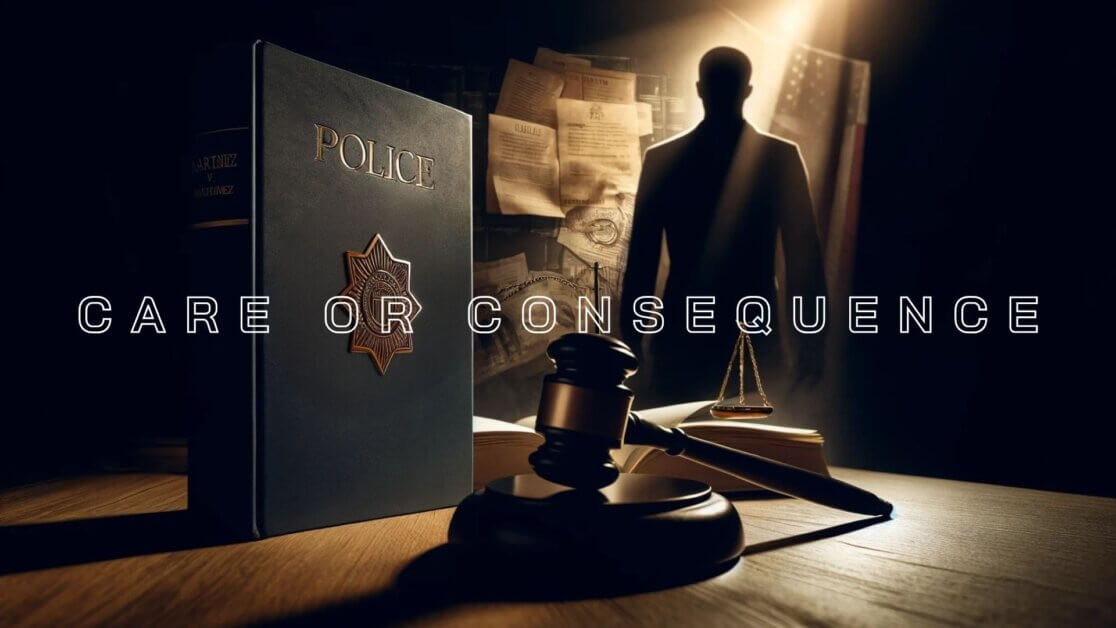On June 16th, 2020, President Trump released an executive order titled, “Safe Policing for Safe Communities”. The order was broken into the following six sections, which we’ve summarized for you. The main focus of the order is on better police training, a more transparent police database regarding UOF incidents, a reallocation of grant money for departments who are willing to adopt these new and more transparent policies, and a specific focus on mental health in our Country.
Section 1: Purpose
In this section, President Trump outlined the crucial role that law enforcement plays in our society and the risks that they take every day, such as:
- Protecting the rights to life and liberty guaranteed through the Constitution for every single person in our Country
- Recognizing officers put their life on the line for the good of their Country
- Providing protection and building healthy relationships between police agencies and the community
- Ensuring a safe community where all can prosper and remain productive
- Addressing misconduct and misuse of authority in order to maintain justice with a particular focus on African American communities
Section 2: Certification and Credentialing
In section two Trump orders that state and local law enforcement agencies must constantly assess and improve their practices and policies and remain transparent. To help with these goals:
- Agencies should use independent credentialing services to accelerate assessment and keep community confidence up when it comes to the police in their community.
- The Attorney General will allocate DOJ grant funding to state and local law enforcement agencies that seek out appropriate credentials through a certified credentialing service.
- The Attorney General will certify independent credentialing services in the following areas:
- UOF and De-escalation Techniques
- Performance Management Tools & Early Warning Systems for officers that may require intervention
- Best Practices in Community Engagement
- In order for agencies to meet the standards for certification:
- State & local law enforcement agency’s UOF policies meet the requirements regarding all applicable Federal, State, and local laws
- UOF policies must prohibit the use of chokeholds, except in situations where use of deadly force is allowed by law
- The Attorney General will meet with existing credentialing services to encourage them to offer a cost-effective, targeted training process regarding appropriate UOF policies and the training should be accessible to law enforcement agencies of all sizes and jurisdictions.
Section 3: Information Sharing
- The Attorney General will create a database that allows Federal, State, local, tribal, and territorial law enforcement agencies to share information regarding instances of excessive use of force.
- The database will include a way to track terminations or de-certifications of law enforcement officers, criminal convictions of law enforcement officers for on-duty conduct, and civil judgments against officers for improper use of force. This database will also account for officers who resign or retire while under active investigation related to the use of force.
- The Attorney General will regularly and periodically share this information with the public when it is applicable to the law.
- The Attorney General will only allow agencies who share their information with the UOF access to DOJ grant money.
Section. 4: Mental Health, Homelessness, and Addiction
- Trump acknowledges the lack of focus on mental health in our society. The order states that mental health struggles have expanded the responsibilities of police officers and we need to shift that responsibility back to social workers. Because officers handle situations where they often come in contact with someone with a mental illness (impaired mental health, homelessness, or addiction) officers need to be trained in properly handling these situations.
- The Attorney General and the Secretary of Health and Human Services will identify and develop ways to train law enforcement officers regarding individuals suffering from impaired mental health, homelessness, and addiction by:
- Offering more collaboration between social workers and law enforcement agencies
- Coming up with better co-responder programs
- Prioritizing resources to support this collaboration and training
- The Secretary of Health and Human Services will look into community-support models addressing mental health, homelessness, and addiction.
- Within 90 days of this order, the Secretary of Health and Human Services shall summarize the results of this report to the President,
- The report will include specific recommendations on funding and the adoption of new programs that support this goal.
Section 5: Legislation and Grant Programs
- The Attorney General will develop and propose new legislation to Congress that should make recommendations on how to enhance the tools and resources available to improve law enforcement practices and build community engagement.
- The legislation will include recommendations on:
- Assisting State and local law enforcement agencies with implementing the credentialing systems described in section 2 of this order, the reporting described in section 3 of this order, and the co-responder and community-support models described in section 4 of this order
- Training and technical assistance required to implement improved UOF policies and procedures
- Retention of high-performing law enforcement officers and recruitment of law enforcement officers who are likely to be high-performing
- Confidential access to mental health services for law enforcement officers
- Programs aimed at developing or improving relationships between law enforcement and the communities they serve through community outreach, listening sessions, and supporting non-profit organizations that focus on improving stressed relationships between law enforcement officers and the communities they serve.
Section 6: General Provisions
- Nothing in this order is meant to impair or affect:
- The authority granted by law to an executive department or agency
- Budget and legislative protocols put in place by the Director of the Office Management and Budget
*You can also review the full document here.
*For more resources on UOF and Police Training click here.



